#Democracy! Free Thematic Semester at the University of Applied Sciences Potsdam
FHP teaching staff and students are organising the summer semester 2024 under the motto #Democracy! With this initiative, all members of the university are invited to actively engage with issues of democracy, diversity and openness as part of courses, research projects and workshops.
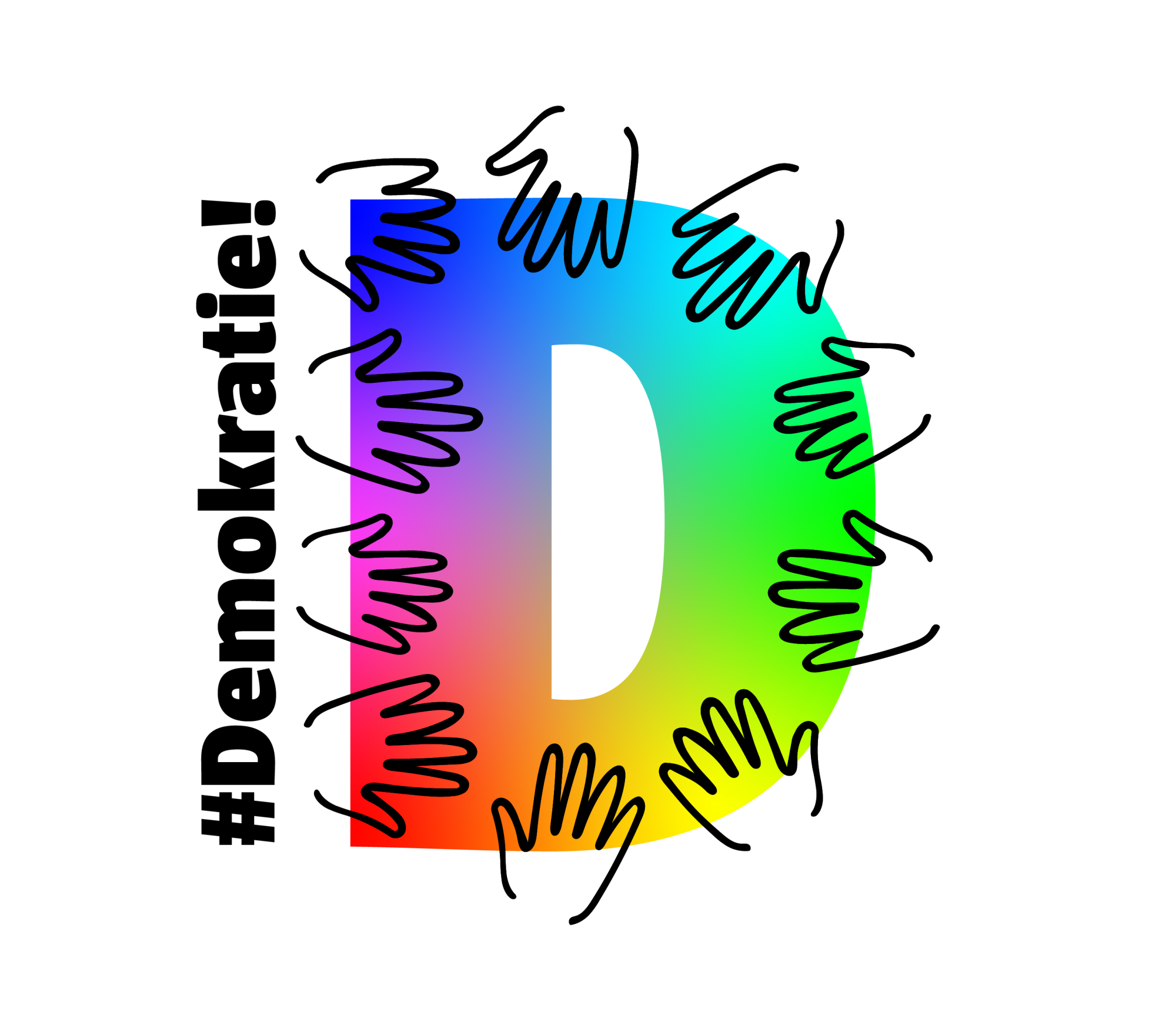
#Democracy! invites you to a dialogue
The year 2024 is a year of democracy in many respects: almost half of the world's population will be called to the ballot box to elect their parliaments and governments. In Brandenburg, elections for local parliaments, the state parliament and the European Parliament are coming up. Following the revelations about a far-right meeting in Potsdam, millions of people in Germany took to the streets in favour of democracy in the first few weeks of the year. The issue of democracy has taken on an acute urgency in a very short space of time. This topic is also reflected in the Science Year 2024, which is dedicated to the focus on freedom and invites constructive dialogue between science and society.
At the University of Applied Sciences Potsdam, teaching staff and students have joined forces as part of a decentralised initiative to place the summer semester 2024 under the motto #Democracy! The themed semester invites all members of the University of Applied Sciences Potsdam to engage with democracy, diversity and openness as part of teaching and research activities. The thematic focus is voluntary for everyone and is intended to serve as a platform for inter- and transdisciplinary dialogue. The central question is: How can we protect and further develop the free democratic basic order in the face of various crises? In order to find answers to this question, specific events will be organised, existing courses will be adapted to the topic, aspects of the topic will be addressed in individual sessions of existing courses and independent projects will be initiated.
Dates
More eventsAlliances & initiatives

#Zusammenland - Diversity makes us strong
The University of Applied Sciences Potsdam is taking part in the campaign "#Zusammenland - Vielfalt macht uns stark" – a joint initiative of major German media companies.

Wahl-O-Mat Europawahl 2024
Der Wahl-O-Mat der Bundeszentrale für politische Bildung ist ein Informationsangebot zur Europawahl am 09. Juni 2024. Als Wahlentscheidungshilfe werden Antworten der 35 zur Wahl angetretenen Parteien auf von einer unabhängigen Kommission ausgewählten zentralen Fragen zum Abgleich mit den eigenen Standpunkten bereitgestellt.

Sozial-O-Mat Europawahl 2024
Der Sozial-O-Mat der Diakonie Deutschland ist eine Wahlentscheidungshilfe zur Europawahl 2024 mit Schwerpunkt Soziales. Mit dem Sozial-O-Mat kann mensch die eigenen Positionen zu zentralen sozialen Themen mit den Antworten der Parteien abgleichen.

Science-O-Mat Europawahl 2024
Der Science-O-Mat der Scientists for Future (S4F) ist ein Wahl-O-Mat zur Europawahl 2024 mit Schwerpunkt Klimawandel, Nachhaltigkeit und Zukunftssicherung. Mit dem Science-O-Mat können die eigenen Positionen zu zentralen politischen Fragen mit einem Schwerpunkt auf Wissenschaft, Umwelt und Energie abgeglichen werden.

Per Briefwahl an Europa- und Kommunalwahlen teilnehmen
Ausführliche Informationen zur Briefwahl mit Fristen usw. der Landeshauptstadt Potsdam, die Unterlagen können Wahlberechtigte online oder postalisch bestellen, auch persönlich vor Ort erhalten, sogar mittels Vollmacht, nur nicht telefonisch.

Im Auslandssemester per Briefwahl an Europawahl teilnehmen
Dieser Flyer erklärt kurz und knapp, wie einfach es ist, mittels Briefwahl aus dem Ausland (oder einem anderen Bundesland) an der Europawahl teilzunehmen. Jetzt schnell nachschauen und die Fristen für die Beantragung des Wahlscheins beachten.

Fragen und Antworten rund um die Europawahl 2024
Aber wer darf eigentlich am 09. Juni 2024 wählen? Wie viele Stimmen habe ich und wen kann ich wählen? Und wie und wo kann ich mich nach der Wahl in die Arbeit des Europäischen Parlaments einbringen? Die Broschüre der Brandenburgischen Landeszentrale für politische Bildung beantwortet zentrale Fragen und liefert kompaktes Wissen zur Europawahl.

Kommunalwahlen in Brandenburg 2024
Viele Informationen zu den Kommunalwahlen 2024 in Brandenburg sind auf der Website der Brandenburgischen Zentrale für politische Bildung zu finden.

Ehrenamt: Informationen für Wahlhelfende
Wahlhelfende leisten einen wichtigen Beitrag für die Durchführung von Wahlen. Sie erleben hautnah, wie Demokratie gelebt wird. Auf der Webseite gibt es allgemeine Informationen, was, wie, warum. Bei Interesse am besten direkt bei der eigenen Gemeinde anmelden bzw. erfahren, ob noch Personen gebraucht werden.

Daten zu Wahlen in Brandenburg
Ein Miro-Board mit Informationen zu Wahlergebnissen, Prognosen und Analysen im Bundesland Brandenburg, sowie vielen weiteren spannenden statistischen und politischen Informationen – vorbereitet von Prof. Klaus Dufke (FHP) für den Kurs THE TIMES THEY ARE A-CHANGIN.

Erklärvideos im Auftrag politischer Bildung
Dieses Miro-Board mit Informationen zur politischen Information versammelt Konzepte und Projekte, wie auch animierte Infografiken zur politischen Bildung oder zu Desinformation und politischer Propaganda - vorbereitet von Prof. Klaus Dufke (FHP) für den Kurs THE TIMES THEY ARE A-CHANGIN.

Grundbegriffe Demokratie
Diese Broschüre der Brandenburgischen Landeszentrale für politische Bildung erklärt mit farbenfrohen Illustrationen die wichtigsten Ämter, Prinzipien, Prozesse und Strukturen des demokratischen Systems – von freiheitlicher demokratischer Grundordnung bis zur praktischen Verabschiedung eines Gesetzes.
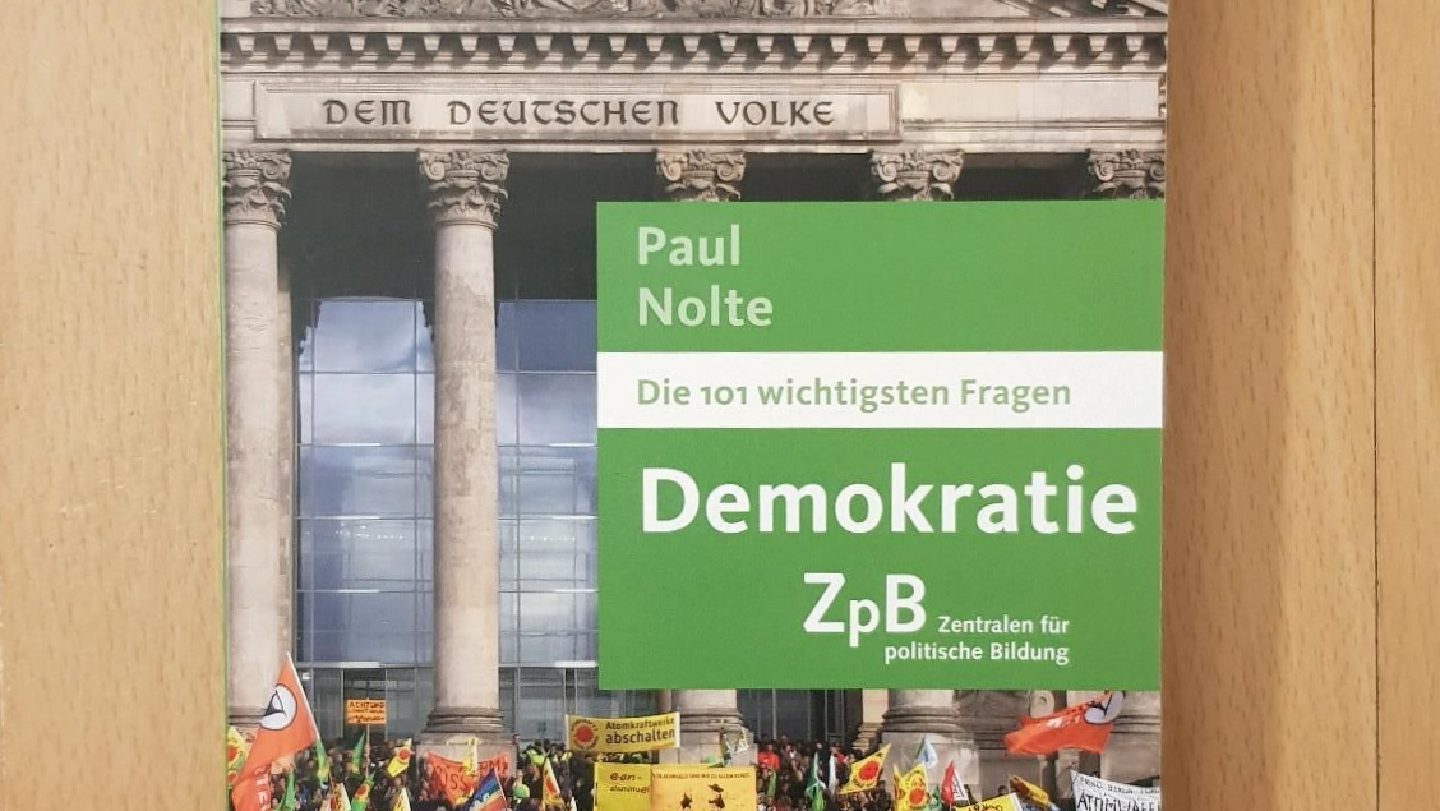
Die 101 wichtigsten Fragen: Demokratie
Richtig tief eintauchen in das facettenreiche Thema Demokratie kann mensch mit dieser kostenfreien Sonderausgabe eines kleinen 1 × 1 der Demokratie von Paul Nolte. Von den historischen Anfängen bis zu aktuellen Entwicklungen und Forschungsergebnissen wird elementares Wissen vermittelt und zum eigenen Weiterdenken eingeladen.

Forschung gegen Fake News
Was verbirgt sich hinter den Begriffen Desinformation und Fake News und welche Gefahren gehen davon aus? Wer verbreitet Fake News? Wie können sie erkannt werden? Welche Rolle spielen Wissenschaftler*innen und moderne Technologien? Antworten und Anregungen zum Nachdenken bietet diese Broschüre des BMBF (2023).
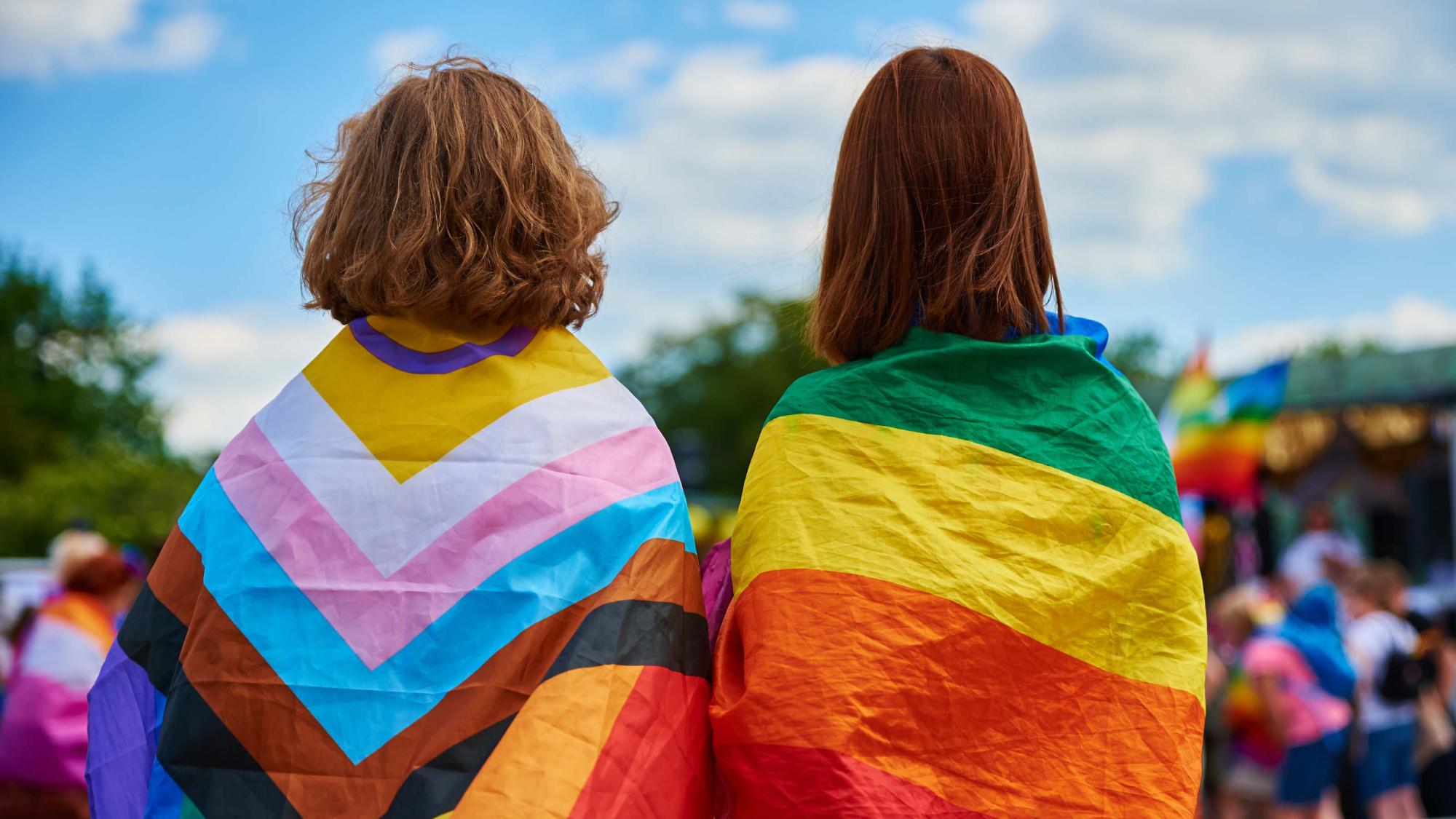
Für Diversität & Toleranz
In diesem Positionspapier verpflichtet sich die Fachhochschule Potsdam dazu, eine diskriminierungssensible Hochschule und ein lebenswerter Ort für Alle zu sein, wo diskriminierende, menschenfeindliche und antidemokratische Äußerungen und Handlungen keinen Platz haben.
Courses
Alliances & initiatives
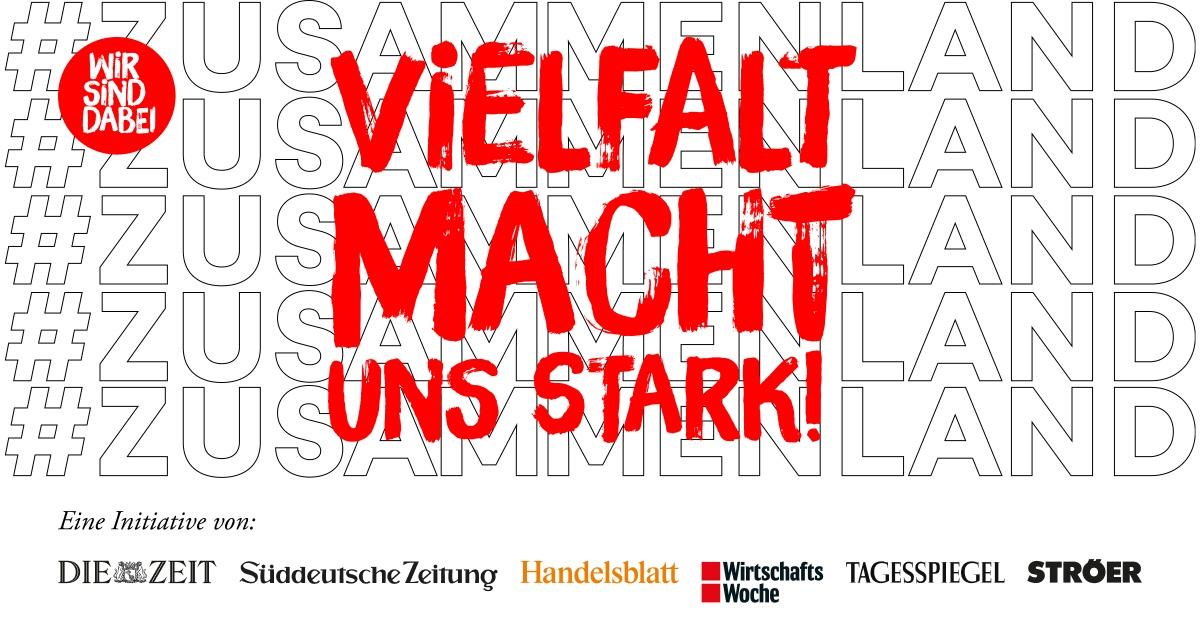
#Zusammenland - Diversity makes us strong
The University of Applied Sciences Potsdam is taking part in the campaign "#Zusammenland - Vielfalt macht uns stark" – a joint initiative of major German media companies.
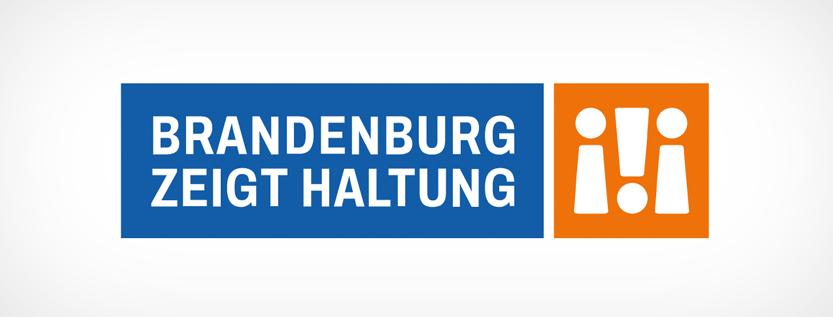
Brandenburg takes a stand!
The University of Applied Sciences Potsdam supports the call for democracy and cohesion.
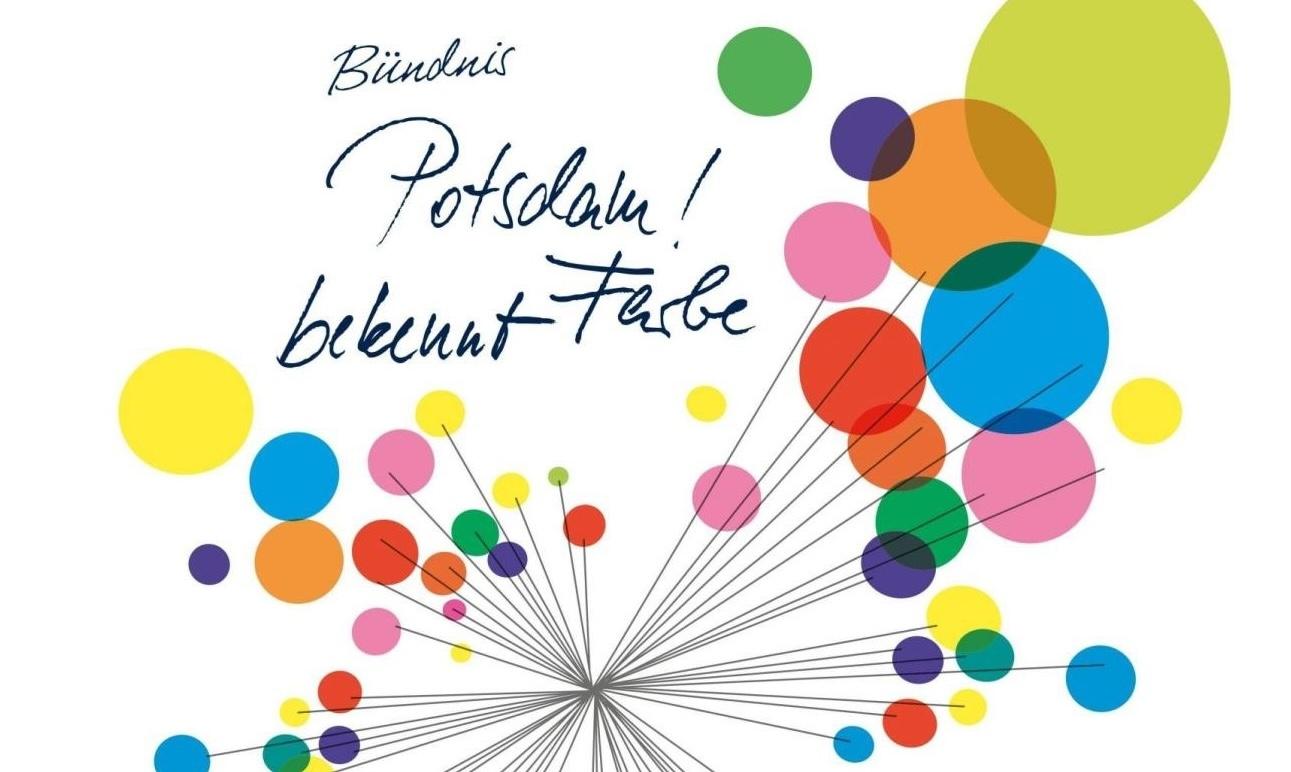
Potsdam! bekennt Farbe
The University of Applied Sciences Potsdam plans to join "Potsdam! bekennt Farbe"
Unterstützer*innen
Das Demokratiesemester wird finanziell und organisatorisch unterstützt von
Contact
The organisation team can be reached at demokratiesemester@fh-potsdam.de.